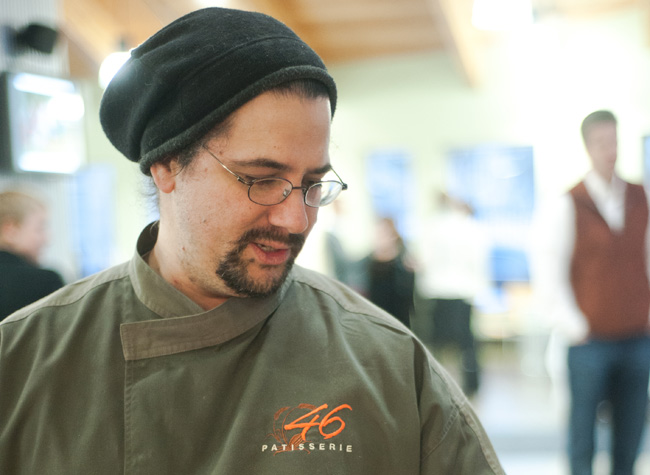
The Coupe du Monde de la Pâtisserie (The World Cup of Pastry) is the top international competition for pastry chefs. Winning is a dream for some, including John Kraus of Patisserie 46 in Minneapolis, who will lead the U.S. team in the next edition. He has been meeting monthly with his two teammates and their coaches since November of 2013 to practice for the event, which will be held in Lyon, France next January 25 and 26. Kraus has been accumulating important awards for more than a decade, so he seems a natural contender for this prestigious title. His teammates and coaches have worked together before, and Kraus describes a strong spirit of sharing.
Kraus is no stranger to major pastry competitions in France. He assisted Jacquy Pfeiffer when he competed in the Meilleurs Ouvriers de France (Master Craftsmen of France), and his voice can be heard in the documentary, Kings of Pastry (available on Netflix and iTunes), which follows Pfeiffer and several other competitors through their trials at this three-day contest for French nationals. The tasks in both competitions revolve around pastry expertise, but the grueling Meilleurs Ouvriers tests individuals, and any number can receive the award. The Coupe du Monde sees national teams competing against one another for the three top places. A short video about the 2011 U.S. team and their creations is available here.
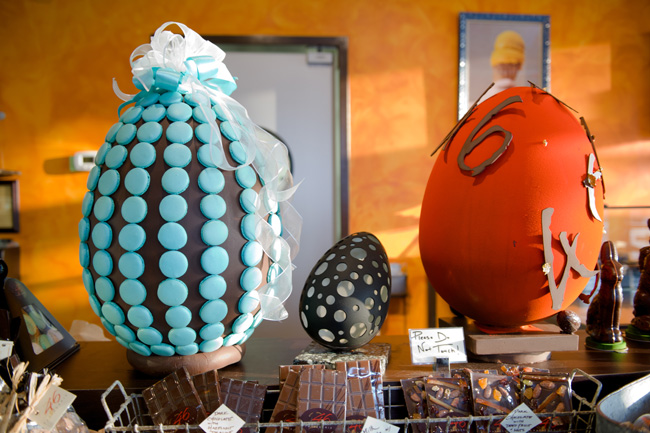
The Coupe du Monde requires the creation of three chocolate desserts, three frozen fruit desserts, 12 plated desserts, an artistic creation made of sugar, one made of chocolate, and an ice sculpture — all in 10 hours. The work is done in front of an audience; this is not a low-pressure situation.
HEAVY TABLE: Is this your first truly international competition?
JOHN KRAUS: Yes. International? Absolutely.
HEAVY TABLE: But you have quite a resume in domestic …
KRAUS: … but I’ve never had a competition in France. It’s the biggest one there is. This is like a dream! You spend your whole career thinking about this. It’s kind of like as a kid, you’re counting down the seconds to make the last shot. This is the Super Bowl of pastries. It’s pretty amazing!
HEAVY TABLE: How was the team chosen?
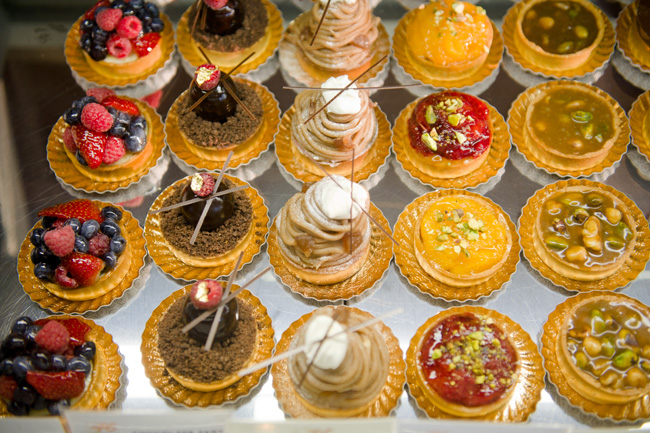
KRAUS: Ewald [Notter] and Donald [Wressell] are the coaches, and Gilles [Renusson] is the president [of Club Coupe du Monde U.S.A.]. They had a lackluster showing, typically for the trials, and you can’t build a team when no one shows up, right? I had washed it off my radar. It was a dream for the last 23 years, but I thought: “OK. That was that, and now it’s on to business and not worrying about competitions.” I had recently started thinking of why I didn’t do it, and one day Donald called me and said, “They’ve asked me to coach the team.” And I said, “OK. Good luck.” He goes, “I’m not calling just to give you news; I’m calling to see if you’d like to do this.” I thought, “Sure, I’ll do it!” And after that we recruited Joshua Johnson [of Vanille in Chicago] and Scott Green [of the Langham Hotel in Chicago], and that was it. Away we went! This was in October of last year, maybe September.
HEAVY TABLE: It’s such an intense competition in France, and this was so low-key at the origin. I’m surprised.
KRAUS: Low-key, yes, but Donald and I have been friends for about 18 years, and Josh and I used to work together, and Scott was my student 12 years ago. Gilles Renusson came to this country with my old boss and Ewald. I was his assistant for the world championships. It’s such a tight group; there’s a lot of really good energy that comes from all of us knowing each other for so long.
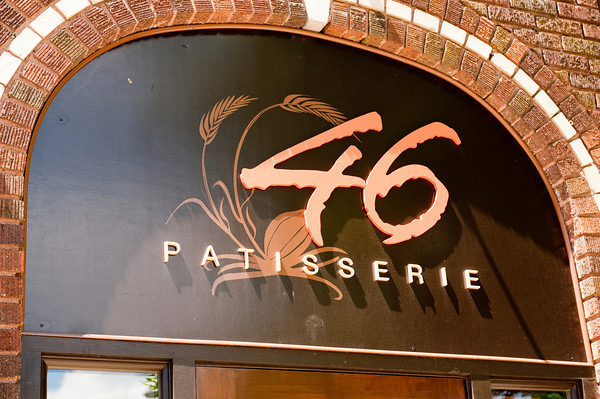
It was almost like it’s the perfect timing to do this. For 12 years before this I was engulfed in a world of competitions and elite pastry chefs on a weekly basis. I worked for two world-class pastry chefs, so it’s hard for that to go to sleep. I guess it lay dormant for a while. But when the question was asked, it was like, “Of course; that’s what I’m supposed to do.” So that’s what I did. It’s like putting a nice motorcycle in a garage and never riding it. You get this weird feeling like you want to ride the bike — really fast.
I have a competition every day here, so I’m OK with it, you know.
HEAVY TABLE: Speaking of motorcycles, do you have any outside interests that are either really similar to or totally opposite from the work you do on a day-to-day basis?
KRAUS: I love fishing. Fishing and hunting I think are really … anything outside.
HEAVY TABLE: You don’t paint, for example?
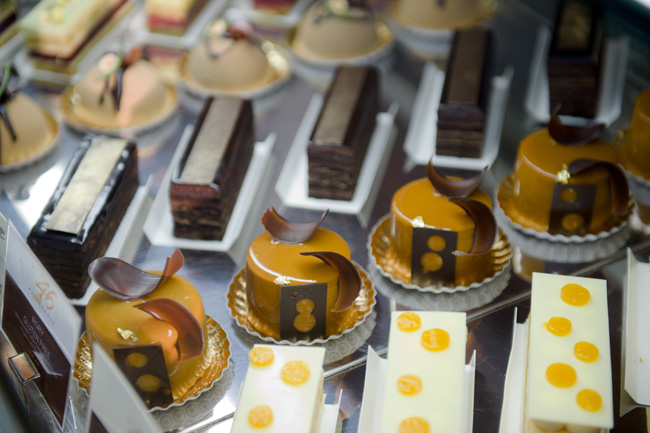
KRAUS: No. I really don’t do anything artistic outside of this. My uncle, years ago, was dean at a college, and he gave me some random test that they give to their students to see what they’re really supposed to do, and it came back that I should do something artistic, but I needed adventure or I would get bored. That kind of sums it up. Creativity: it’s important.
HEAVY TABLE: I’ve seen the movie Kings of Pastry, and I was wondering how much the Coupe du Monde differs from the Meilleurs Ouvriers de France contest shown in the documentary.
KRAUS: You know Jacquy [Pfeiffer] and Sebastien [Canonne], were my bosses. Jacquy is one of the chefs profiled in Kings of Pastry. I was with him twice not getting it, so I understand disappointment on that level. You can hear my voice in that movie if you listen closely. I was in the back of the van in France, driving stuff, and Donald is in the movie, too, quite a bit, actually. But [the Meilleurs Ouvriers] is different: It is an amazing test of a chef’s skill and mental strength. That competition is so intense it goes straight to your core, and [it] is one man or woman’s quest to prove something. [The Coupe du Monde] is one day that we spent the last year-and-a half training for, and it’s a team. I guess its hard to quantify the difference, but they’re both equally important.
The award for the Meilleurs Ouvriers de France is given by the French government. The Coupe du Monde is … governed by other pastry chefs, and [also] by the Meilleurs Ouvriers de France, which is even more intense to me because I’ve worked for them for so long. I know what they’re looking for, and I just hope that I can get to that point. It’s a pretty high level. And that day: I hate to think that I’m going to base my entire career on one day, but it’s got to be the best I’ve even done in one day — ten hours of the best work I’ve ever done. It’s got to be better than the Japanese team’s best, and that’s a scary concept to grasp.
You never know. It could be a team that’s never shown up before: Russia, for example, or Morocco … it just comes down to whoever is having the best day — and preparation. But as you know, if you’ve seen the show [Kings of Pastry], you can be the best one in the whole room in preparation, and you lift a piece up off the table, and down it goes, and a year-and-a-half’s worth of work goes out the window. And you have to clean it up, and get something up, and say, “Well it was an experience!”
HEAVY TABLE: What drives you to compete? Why don’t you just stay here and make beautiful pastries and make local people happy?
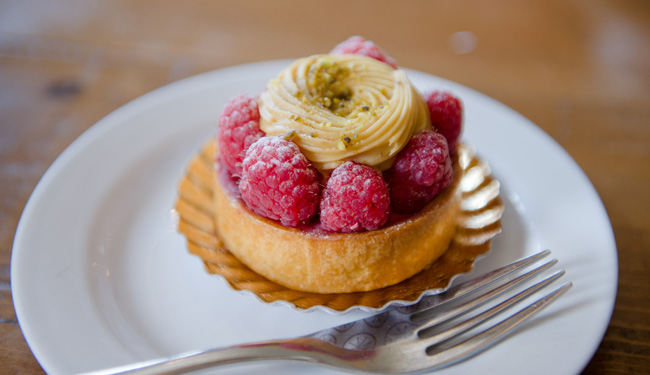
KRAUS: There’s just something when you compete; it brings something else out of you. It’s like when you confront a fear. You want your peers to appreciate what you’ve done, and you compete. And I’m not going to lie: I’m doing this because I want to win. If I don’t, then I’ll have to figure out what that meant to me. And there’s a chance we won’t win, but I think in all the competitions and all the judging there’s something that’s … interesting. It’s almost like you do it to just push yourself that much harder and that much further. Even if you know what the outcome’s going to be. It’s like David and Goliath.
There’s a weird feeling. It’s nauseating, too. You go through stages: first, there’s about six months of: “This is awesome; this is great.” Then there’s about three months of, “I’m really tired.” And then there’s three months of: “Oh my god! What am I doing … this isn’t good enough … this is terrible … there’s no way this is going to happen.” And then about a month before, you’re like: “Really, really, why am I doing this? What’s the matter with me?”
And you’re working like a dog. And then a couple of days before, you’re nauseous. You’re just sick with dread. You can’t sleep. And then the day comes, and you get up like any other day, still very nervous. You try to choke down some oatmeal or something to give you fuel to get through the day, and then you start and … there’s nothing. It’s amazing!
HEAVY TABLE: You’re flying.
KRAUS: That’s it. And muscle memory takes over, and you just do it. And it’s not like — I’m not doing brain surgery. I’m building cakes for a competition.
HEAVY TABLE: It’s hard to keep that perspective, Isn’t it?
KRAUS: Yeah, It’s really weird. You really tune everything out, and for 10 hours, it’s the most focused, amazing experience in your life. If you’re lucky enough to win, it feels great. If you lose, you just want to keep doing it and try doing it again. It’s like a drug. It’s really intense. It’s crazy actually; it’s quite crazy. And the Meilleurs Ouvriers de France is insane. The preparation, and then those three days in which they’re actually doing it. It’s a real beat down: mentally, physically. It’s so demanding.
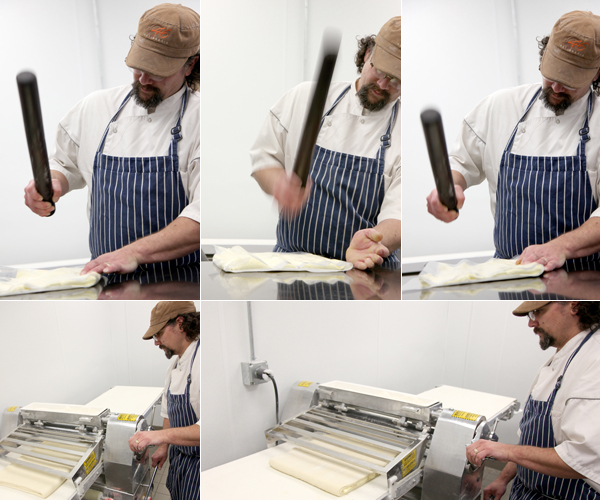
HEAVY TABLE: The Coupe du Monde is demanding enough?
KRAUS: This is good enough. And the fact that it’s with a team that I’m very close with and that I’ve known for so long — it’s really special to take the journey with them.
HEAVY TABLE: What are you doing to prepare?
KRAUS: My responsibilities are the cakes. so I’m building cakes, ice cream cakes, and the plated dessert. And then helping with the chocolate showpiece. We’re all helping each other. Scott is focusing on sugar, and Joshua is focusing on chocolate and the ice sculpture.
HEAVY TABLE: Chocolate and ice?
KRAUS: Yeah, it’s a pretty all-encompassing little deal.
HEAVY TABLE: So you are overlapping a lot [while most teams specialize]?
KRAUS: We’re overlapping. There’s a typical recipe that seems to work for most teams, but we’re using our strengths the best we can everywhere. I think that’s what makes us a team. And I think this is one of the few times there’s been a team from the U.S. made up solely of Americans. Usually there’s one or two French people. There always has to be one American, but they can always have foreign nationals.
HEAVY TABLE: And this is all Midwestern?
KRAUS: Yeah.
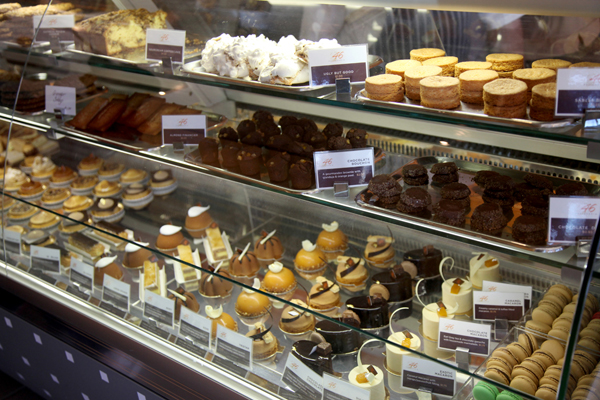
HEAVY TABLE: Do you bring molds with you? What do you do in advance?
KRAUS: You can take some molds, but this year they don’t want to see molds. They want to see real technique, and it wants to go back to how they used to build showpieces in the beginning. It’s pretty cool: You have to show some real skills — hand skills — not just pouring things into a mold. And artistry. Its seemingly more challenging, but it’s hard every year.
HEAVY TABLE: Will there be any surprises at the competition? Something could break, or whatever, but do you know exactly what will be expected of you?
KRAUS: Yes. Well, We have guidelines, and lets hope that what we think is exactly what’s expected equals what they expect.
HEAVY TABLE: Do they give you everything that you need?
KRAUS: No. We have everything with us, and they will have machines and things like that. We basically will bring everything from here to there. We have a few containers of equipment over there already, but for the most part, we are a self-contained unit.
HEAVY TABLE: What are you most and least looking forward to?
KRAUS: I know as soon as it’s over I’m going to miss it. Most is just completing the task. It’s pretty cool to actually reach a goal. Whatever the outcome is, I always wanted to do it, so that’s pretty cool. The atmosphere is supposed to be crazy, so I’m kind of looking forward to that. I don’t like crowds of people. I’m sort of shy. So that’s probably my least favorite thing, but I know once I start working, I will forget all that.
HEAVY TABLE: What do you hope to bring home with you?
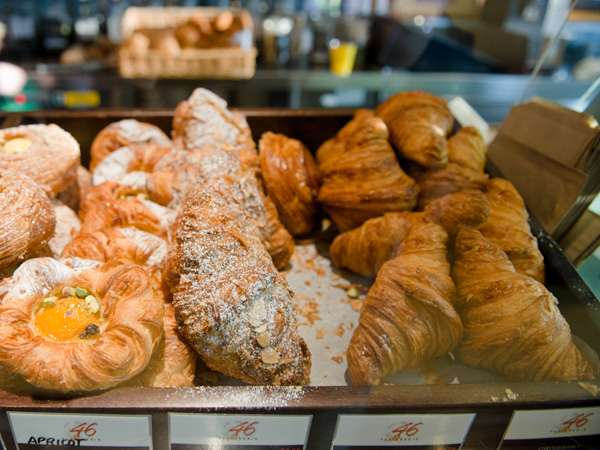
KRAUS: A gold medal. No, you know, of course that’s why … You want to win; it’s like when you do anything else. To be on the podium is going to be a big honor, no matter what place you come in. If you’re lucky enough to finish in the top three, that’s great. If we don’t finish in the top three, then I come home with a really great experience.
HEAVY TABLE: You were on the faculty at the French Pastry School in Chicago for 10 years. Do you miss teaching, or do you get enough of that kind of thing in the bakery?
KRAUS: Yes. I miss it. It’s different, because when you were teaching at the school, you were teaching your customers. You know what I mean: they’re paying to be taught. So their goal is to learn in order to perfect … maybe not perfect. Perfect is a bad word, but to produce what I expect them to produce. Here it’s different, I’m teaching people out of my desire that the product is as great as we can make it. I don’t think we can reach perfection in any way shape or form, but you can get close.
HEAVY TABLE: You can get close enough so that you can’t tell the difference.
KRAUS: Yeah. It’s a quest, and that’s what keeps the wheels turning. But I think teaching, when it’s your own business, becomes almost like a survival tool because you have to teach somebody to do something so that you don’t have to do it.
It’s slightly different but still painful when mistakes are made, either way. You see the disappointment in a student’s face versus the disappointment in my face or one of [the baker’s] faces when something is not right … which is the greatest teacher, I think.
HEAVY TABLE: Yes, there’s pain involved in learning.
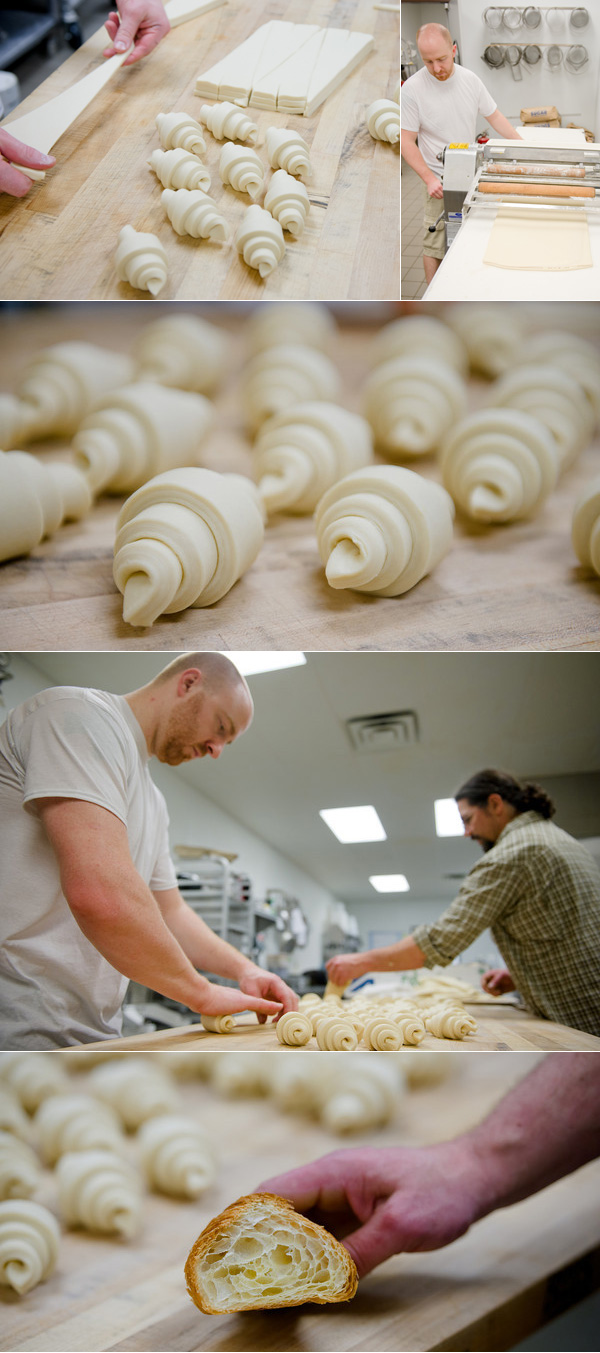
KRAUS: Yeah. I tell them that if they’re disappointed in their work, then they know they still care. When you stop caring you may as well do something else.
HEAVY TABLE: What is the future of chocolate at Patisserie 46? Might you be expanding what you do with chocolate here?
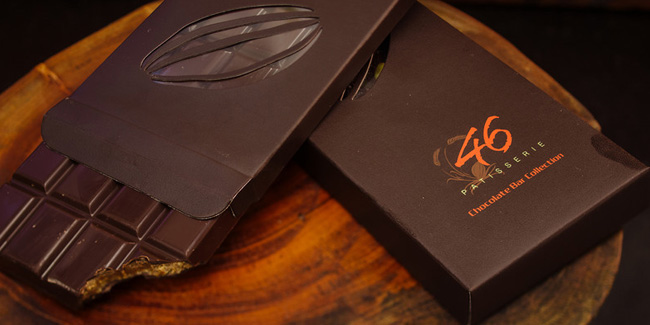
KRAUS: We want to make a line of several tablettes [bars], and then really see where we go with that. And lots of spreads, like a caramel and a chocolate spread. And more confections. Mostly a big line of tablettes: different flavors and chocolate origins. Maybe ones from Venezuela, ones from Honduras, wherever we can find very interesting chocolates. Probably all around the 71-percent range.
Patisserie 46, 4552 Grand Ave S, Minneapolis, MN 55419; 612.354.3257
The text was edited for clarity.

Well written and very informative– Good Luck to the Team in January !!!